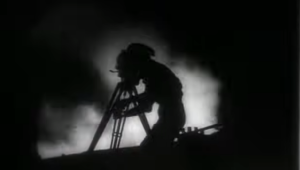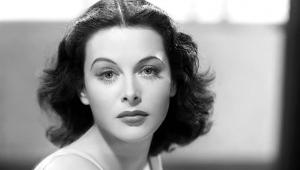I remember it well and had a huge radiogram for my record replay. Although stereo was a big audio leap forward there were some unforgivable crimes committed in its name. e.g. "Enhanced Stereo" My first encounter with this was a Ray Charles album of his very early ( pre Atlantic) songs and it was truly awful in it's attempt to get two channels out of one.
Is it any wonder that Phil Spector made the famous "back to mono" statement.
The Rise and Fall of Stereo (Part One)

First, Berliner developed a groove with horizontal modulation. The side-to-side wiggle also nicely stored an analog waveform. Then something really interesting happened. Engineers realized that a 45-degree groove cut using both vertical and horizontal modulation could store two different signals. History does not document exactly what transpired, but I’m pretty sure the first time an engineer successfully played two channels from one groove, he exclaimed, “Holy moly! You’ve got to be freaking kidding me!”
And thus the stereophonic record was born. One record, one groove, one phono cartridge, two channels. That was a game-changer. Before that, a young man could merely ask a young woman if she wanted to hear his record player. That was a tough sell. But now, he could suavely ask her to come to his place to listen to his stereo. Like I said—a game changer. In fact, the reason you are here today is probably because your mom fell for that line. Alternatively, a) your dad was handsome; b) he brought home a steady paycheck; c) they were in love; or d) your mom was an audiophile.
The stereo LP opened up a new world of audio. Instead of sound emanating from a point source, it came from two sources. But the result was much more than twice as good. With stereo encoding and playback, there are two physical sources, and an infinite number of virtual sources. With phantom images, you could point to the violins there, the clarinets there, the trumpets there, and the double basses there, as they were acoustically placed across the panorama. Sound didn’t simply come from a point, it came from an entire wall of sound. With due respect to all the other technical improvements in audio technology, few inspired as much excitement as the switch from monaural to stereo.
I haven’t personally inspected the seismic logs from the ’60s, but I imagine there were tremors across North America as living-room furniture was quickly rearranged. To supremely benefit from the miracle of stereo, the speakers had to be in the right place in the room and you had sit in the right place relative to them. They didn’t call that place the “acoustic-geometric center,” or the “correct place to sit.” They called it the “sweet spot.” That’s because when everything was dialed in and your comfy chair was exactly between the two speakers, the listening pleasure elicited by stereo was absolutely sweet.
Stereo was so demonstrably superior to monaural (no furrowed-brow A/B tests needed to vouch for it) that the name of the encoding method itself, stereo, instantly became synonymous with high-quality music playback. Two ears, two speakers—it all made perfect sense.
In time, stereo gave way to home theater. While some might view that evolution as a step away from stereo, I see it as stereo’s crowning achievement. Seated within the magical ring of a 5.1-channel system, you retained stereo in front and effectively added stereo in back, with phantom images all around. There’s nothing better than sitting within and being immersed by the soundfield created by properly spaced-apart speakers. Wonderful.
But within that ring of speakers lurked an odd-numbered monaural speaker that would mutate and multiply, and grow to threaten the very existence of stereo....
- Log in or register to post comments


I remember it well and had a huge radiogram for my record replay. Although stereo was a big audio leap forward there were some unforgivable crimes committed in its name. e.g. "Enhanced Stereo" My first encounter with this was a Ray Charles album of his very early ( pre Atlantic) songs and it was truly awful in it's attempt to get two channels out of one.
Is it any wonder that Phil Spector made the famous "back to mono" statement.


























































